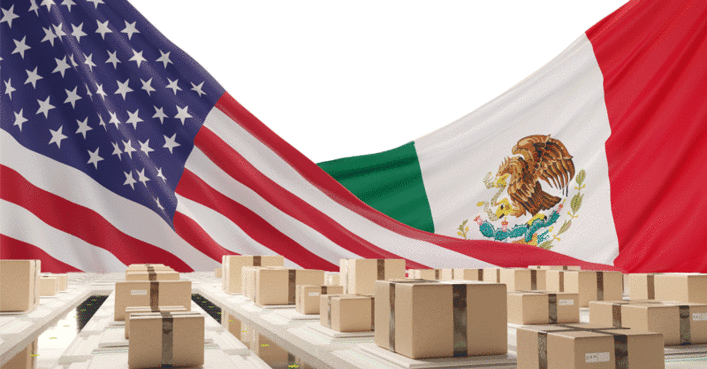In the realm of global commerce, nearshoring is gaining traction. This strategy involves relocating business operations to nearby countries. It's a response to the challenges of offshoring, where distance can complicate matters.
Nearshoring offers a blend of cost-effectiveness and proximity, making it an attractive option for many businesses. This article dives into the intricacies of nearshoring. We'll explore its benefits, the role of trade agreements, and how it impacts the supply chain.
We'll also examine the rise of Mexico as a nearshoring hub for the United States. Join us as we navigate the world of nearshoring and its implications for global commerce and international trade.
Understanding Nearshoring and Its Significance:
Nearshoring is a business strategy that involves moving operations to a nearby country.
This strategy is often contrasted with offshoring, where businesses move operations to far-off countries. Nearshoring offers several advantages. These include reduced shipping times, lower transportation costs, and easier coordination due to similar time zones. It also allows for better control over quality and production processes.
This strategy strikes a delicate balance between cost-effectiveness and operational efficiency, empowering businesses to swiftly adapt to shifting market dynamics and evolving customer needs. By minimizing the hazards linked with extensive supply chains, it nurtures stronger bonds with suppliers and partners. Ultimately, it paves the way for heightened competitiveness and an expanded market share.
The Nearshoring Advantage: Proximity and Economic Factors:
One of the main advantages of nearshoring is proximity. Being close to the production site allows for better control over the manufacturing process. It also reduces shipping times, which is crucial for industries where speed to market is a key competitive factor. Moreover, proximity facilitates better communication and coordination because of similar time zones and cultural similarities.
Economic factors also play a significant role in the decision to close-proximity outsourcing. Lower labor costs in nearby countries can result in significant cost savings.
Additionally, outsourcing can provide access to new markets and customers. It can also lead to increased foreign direct investments, boosting the local economy of the outsourcing destination. However, it's important to consider other factors such as trade agreements, tariffs, and geopolitical stability when deciding to nearshore.

Mexico's Emergence as a Nearshoring Hub:
Mexico has emerged as a popular close-shoring destination, particularly for the United States. It’s strategic location, coupled with the benefits of the USMCA trade agreement, makes it an attractive option for businesses. Mexico offers a skilled labor force and competitive manufacturing costs.
Moreover, its robust infrastructure supports efficient logistics and supply chain operations.
In addition, Mexico's growing tech industry is attracting businesses looking to offshore their IT and software development operations. However, companies must also consider factors such as labor laws, intellectual property protection, and political stability when choosing Mexico as a local sourcing destination.

Trade Agreements and Nearshoring: The Impact of USMCA
Trade agreements play a significant role in shaping nearshoring trends. The United States-Mexico-Canada Agreement (USMCA) is a prime example. This agreement has facilitated trade among the three countries, making local sourcing more attractive. USMCA has reduced tariffs and simplified customs procedures, lowering the cost of doing business.
Moreover, it has established standards for labor and environmental practices, promoting fair competition. This has made Mexico an even more appealing as trading partners for the US and Canadian businesses.
However, companies must understand the specifics of the agreement to fully leverage its benefits. In conclusion, trade agreements like USMCA are key drivers, influencing where and how businesses operate.
Cost Reduction and Labor Considerations in Nearshoring:
Close-shoring offers significant cost advantages. Transportation costs are lower due to geographical proximity. This can make things faster and cheaper, improving customer service and saving money on labor costs.
Countries like Mexico have a skilled yet cost-effective labor force. This makes them attractive for businesses looking to reduce production costs without compromising on quality. However, labor considerations go beyond cost. Companies must also consider factors like labor laws, working conditions, and skill levels.
In summary, while nearshoring can lead to cost savings, businesses must carefully consider labor dynamics to ensure sustainable operations.
Tariffs, Trade Wars, and Nearshoring Dynamics:
Trade wars and tariffs have a significant impact on nearshoring decisions. For instance, the recent trade tensions between the U.S. and China have made nearshoring more attractive. Companies are looking to avoid tariffs and maintain smooth operations by shifting production closer to home.
In short, geopolitical tensions and trade policies can influence nearshoring dynamics, making it a strategic choice for businesses navigating the complexities of global trade.
Supply Chain Resilience and the Shift to Nearshoring:
The global pandemic has highlighted the importance of supply chain resilience. Companies are realizing the risks of relying too heavily on distant suppliers. Close-shoring can provide a solution, allowing businesses to maintain more control over their supply chains.
To sum up, nearshoring plays a key role in enhancing supply chain resilience by enabling businesses to swiftly adjust to disruptions and ensure operational continuity.

Geopolitical Tensions and Economic Shifts: Nearshoring as a Strategy:
Geopolitical tensions and economic shifts are influencing global commerce. Trade wars, such as the one between the U.S. and China, have disrupted traditional supply chains. In response, many companies are adopting nearshoring as a strategic move. By sourcing from countries closer to home, businesses can navigate geopolitical uncertainties and adapt to economic changes more effectively.
Environmental Impacts and Sustainability in Nearshoring:
Nearshoring can also have significant environmental implications. By reducing the distance goods need to travel, companies can lower their carbon footprints. This aligns with the growing emphasis on sustainability in business practices. However, it's crucial for businesses to ensure their nearshoring partners adhere to environmental standards, to truly achieve sustainable operations.
The Role of Third-Party Logistics (3PL) in Nearshoring Operations:
Third-party logistics providers play a crucial role in nearshoring. They offer expertise in managing complex supply chains, which is invaluable for businesses. These providers can handle truckload transportation, warehousing, and distribution. This allows companies to focus on their core competencies while ensuring efficient operations.
By leveraging 3PL services, businesses can navigate the logistical challenges of nearshoring. This contributes to the overall success of their nearshoring strategy. Companies like Jillamy exemplify the critical role that 3PL providers play. Jillamy’s comprehensive suite of logistics services enables businesses to streamline their operations and enhance supply chain efficiency.
Moreover, with Jillamy's office in Mexico, businesses benefit from an enhanced ability to manage nearshoring operations more effectively. This strategic presence allows Jillamy to offer localized support, further improving logistics coordination and responsiveness, and ensuring that businesses can fully capitalize on the advantages of nearshoring.
The Future of Nearshoring and International Trade:
Nearshoring is more than a trend. It's a strategic shift in global commerce, driven by a complex mix of economic, geopolitical, and technological factors. As businesses continue to adapt, nearshoring will likely play an increasingly important role.
Countries like Mexico, with their proximity and favorable trade agreements, are well-positioned to benefit from this shift. However, the success of outsourcing will depend on how well businesses and governments navigate the challenges and opportunities it presents.
In summary, nearshoring is transforming the landscape of global commerce. It's a vibrant, developing approach that presents considerable opportunities for corporations, economies, and communities in equal measure.
Jillamy’s Comprehensive 3PL Solutions in Mexico
Jillamy significantly enhances its nearshoring capabilities through the establishment of a full-service 3PL office in Mexico. This strategically located office offers an extensive range of services designed to meet the diverse needs of businesses engaged in nearshoring. Among the key services provided are intra-Mexico and cross-border transportation, which ensures efficient and timely movement of goods within and between countries. Additionally, Jillamy's expertise in customs brokerage facilitates seamless compliance with regulatory requirements, simplifying the complexities of international trade.
The office also excels in port drayage, managing the crucial first and last mile transportation of cargo to and from ports, which is essential for maintaining the flow of goods through supply chains. Comprehensive warehousing solutions are available, providing businesses with secure and strategically located storage options that support inventory management and distribution efficiency.
By delivering these wide-ranging logistics services, Jillamy empowers businesses to effectively manage their supply chains and fully capitalize on the advantages of nearshoring. This holistic approach fosters smoother operations, reduces lead times, and enhances market responsiveness, enabling companies to stay competitive in the rapidly evolving global marketplace. Jillamy's presence in Mexico ensures that businesses can navigate the logistical challenges of nearshoring with greater ease, leading to improved operational efficiency and sustained growth.
Our team is ready to offer customized logistics solutions to meet your specific import export and nearshoreing needs to help your business thrive in today's competitive market. Contact us for more information about our freight management services and how we can support your operations, contact Jillamy


